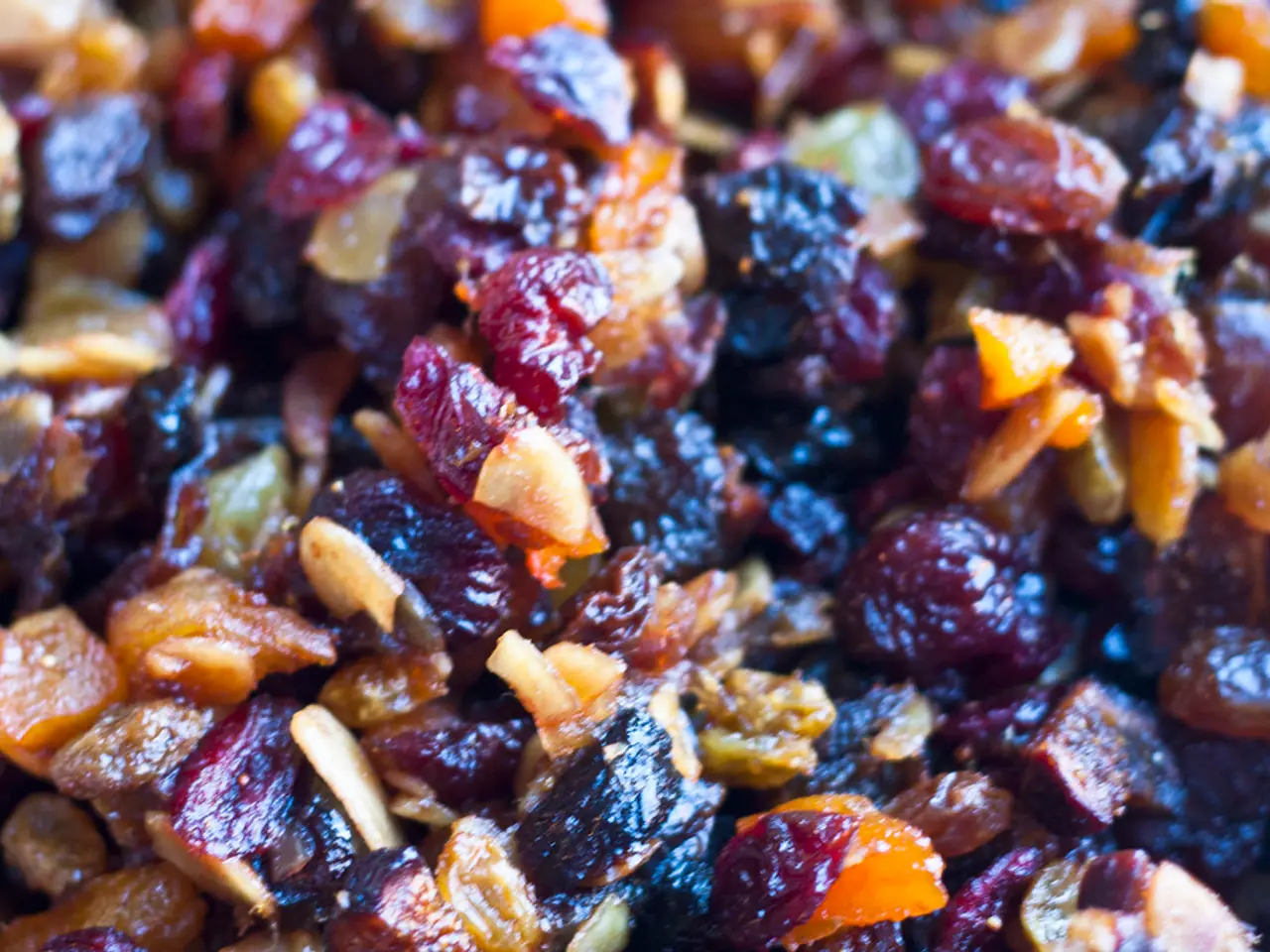Foods that Enhance and Hinder Ozempic-Aided Weight Loss
In the ongoing quest for effective weight loss and diabetes management, a well-balanced diet plays a crucial role when using the medication Ozempic (semaglutide). By adopting a diet rich in protein, fiber, healthy fats, and low-glycemic foods, while avoiding refined, processed, and fried foods, individuals can support their body's response to Ozempic and achieve optimal results.
The recommended dietary approach for those using Ozempic focuses on high-protein, high-fiber, healthy fat, and low-glycemic foods. Lean proteins, such as chicken, turkey, lean beef, fish, seafood, eggs, Greek yogurt, cottage cheese, tofu, tempeh, legumes, and protein powders (if needed), should be prioritized to preserve muscle mass during weight loss.
In addition, a wide variety of high-fiber foods, including leafy greens, broccoli, carrots, fruits like apples, berries, and oranges, and whole grains like oats, should be incorporated into meals. These foods aid digestion, prevent constipation (a possible Ozempic side effect), promote fullness, and stabilize blood sugar levels.
Healthy fats, such as those found in avocados, nuts, seeds, and olive oil, offer sustained energy and improved blood sugar control. Emphasizing foods with a low glycemic index, such as sweet potatoes and non-starchy vegetables, can help avoid sudden blood sugar rises.
On the other hand, it is advisable to avoid or limit refined carbohydrates, added sugars, processed foods, fried foods, red and processed meats, and alcohol. These foods can worsen the side effects of Ozempic such as nausea and bloating, and are generally less beneficial for weight loss and blood sugar control.
Additional tips for individuals using Ozempic include spacing meals 4-5 hours apart to prevent blood sugar spikes and allow digestion compatible with Ozempic’s effect of slowing gastric emptying. Prioritizing protein early in meals can ensure adequate intake before Ozempic-induced fullness reduces appetite.
Consulting a registered dietitian can help tailor a diet plan specific to individual needs, ensuring the best possible outcomes when using Ozempic for weight loss and diabetes management. By following these guidelines, individuals can optimize their body's response to Ozempic and achieve their health goals.
- To optimize the body's response to Ozempic and achieve optimal weight loss results, one should prioritize a diet rich in lean proteins, fiber-rich foods, healthy fats, and low-glycemic foods.
- A well-balanced diet for Ozempic users should also include a variety of high-fiber foods like leafy greens, broccoli, fruits, whole grains, and nuts to aid digestion, prevent constipation, promote fullness, and stabilize blood sugar levels.
- Healthy fats found in avocados, nuts, seeds, and olive oil offer sustained energy and improved blood sugar control, making them beneficial for individuals using Ozempic.
- It's advisable for Ozempic users to avoid or limit refined carbohydrates, processed foods, fried foods, alcohol, red and processed meats, as they can exacerbate the side effects of Ozempic and negatively impact weight loss and blood sugar control.
- To ensure the best possible outcomes while using Ozempic, individuals should consider consulting a registered dietitian to create a personalized diet plan and make informed decisions about their health-and-wellness, fitness-and-exercise, nutrition, and healthy-diets for weight management.




